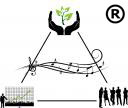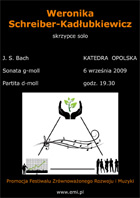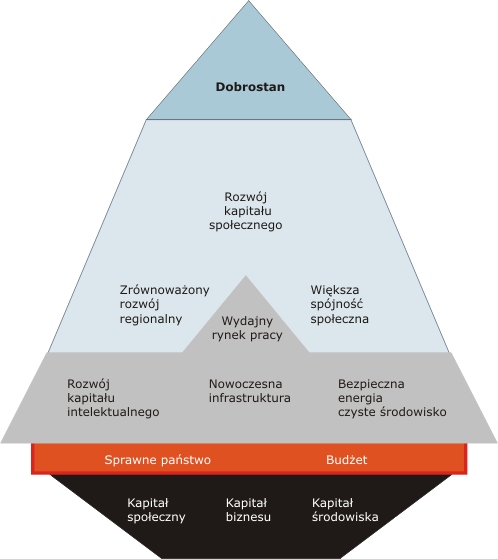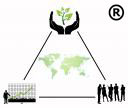Sorry, this entry is only available in Polski.
Kategoria: Sustainable development Blog, Articles and reportage | Komentarze wył. »
Strategia EUROPA 2020
Czerwcowy szczyt Rady Europejskiej zaowocuje zatwierdzeniem strategii EUROPA 2020, potwierdzeniem celów UE i celów krajowych oraz zaaprobowaniem zintegrowanych wytycznych dla strategii EUROPA 2020.
Strategia EUROPA 2020 to strategia na rzecz inteligentnego i zrównoważonego rozwoju sprzyjającemu włączeniu społecznemu. Strategia ta implementuje w zasadzie strategię EU SDS. Jest strategią zrównoważonego rozwoju.
Kategoria: Sustainable development Blog | Komentarze wył. »
Voice in the public discussion on the Green Paper “POLAND 2030 – Development challenges”
On June 17, 2009, the Prime Minister of Poland, Donald Tusk presented a report “POLAND 2030 – Development challenges.” The document presents 10 biggest challenges Poland will be facing within the next two decades:
- Growth and competitiveness
- Demographic condition
- High professional activity and adaptiveness of labour resources
- Adequate infrastructural potential
- Energy and climate safety
- Economy based on development of knowledge and intellectual capital
- Solidarity and regional cohesion
- Improvement of social cohesion
- Performing state
- Poland’s social capital growth.
The expression ‘sustainable development’ has been used several times , sometimes with additional word: ‘regional.’ It is clear that the report, which is to be the framework for a long-term Strategy for Development of Poland, does no implement the EU Sustainable Development Strategy (UE SDS) –http://ec.europa.eu/sustainable/docs/renewed_eu_sds_pl.pdf, which according to the EU takes priority over the Lisbon Strategy. This means that as of today Poland has no binding Sustainable Development Strategy and it will not have one in the near future, unless the public discussion on the Report changes it.
In September 2009 Member States of EU plan the analysis of SDS implemention in the countries of EU …
In the face of the above, talking about ‘civilisational leap’ – isn’t it slightly exaggerated?
I am afraid that the presented polarisation and diffusion model of development does not guarantee the civilisational leap (the model can be found in the section “POLAND 2030 – Development Changes FINAL RECOMMENDATIONS,” page 375 of the Report in Polish and page 6 in English version of Final Recomendations http://www.polska2030.pl/ ).
Justification:
Only demographic development, economic growth and performing state were assumed as solid foundations for development of Poland. Out of three sustainable development capitals, the authors of the report notice only two: social and economic (performing state is the social capital). THEY FAIL TO SEE THE ENVIRONMENTAL CAPITAL!
The planned policies and indicators of success do not include topics related to the environment.
Till 2030 no changes are planned in the tax system toward shifting the tax burden from labour to consumption of resources and energy or environmental pollution.
Lack of the environmental capital in Poland’s development foundations will result in financial problems faced by local communities in implementing delegation of tasks and services pertaining to, for example, social circles – (planned Welfare Society).
Communication, education, labour market, social trust, performing state are all very important development factors, but failing to include the environmental capital in the foundations for development of Poland for the next 20 years is a big mistake. Reasonably used environmental capital may provide a big labour market and generate enormous profits in the long term – the Report discusses long term issues! Integration of three aspects (business, society, environment) with each action is crucial.
Proposal to amend the model
How different is this model comparing to one presented by the authors of POLAND 2030 report? It is the vision of including the environmental capital, as significant dimension of each action, irrespective of whether related to production, service, finances, administration, healthcare sector, culture, sports, or tourism. This is the vision which cares about the quality of life, the well-being in which the shift is made from “to have” to “to be.” It does not imply an obstacle to the development but rather indicates a direction fitting for the 21st century.
Under the environmental law, which defines sustainable development, the Report, which aspires to be a base for strategy, is subject to the environmental impact assessment.
I think some significant changes should be made in the model presented by the authors of the Poland 2030 – as for example those presented above. Otherwise the environmental impact assessments of strategies and programs created in the framework of the version of the report “POLAND 2030 – Development challenges,” published in June 2009, should be negative.
Additional proposal
Inclusion of the Balanced Scorecard in the Polish management process, where the economy, society and the environment would be treated as the “Client,” is another thought to ponder. In other words,tokens of success described in the Report should be extended by target environmental quality indicators.
Wanda Pazdan
Kategoria: Sustainable development Blog | Komentarze wył. »
SDS – the text of UE Sustainable Development Strategy.
Kategoria: Sustainable development Blog | Komentarze wył. »
At this moment Poland is developing new strategy. Now we do not have NSDS. We live in theDecade of Education for Sustainable Development.There is only one way of continuous and consistent efforts to increase public awareness, i.e. through growing responsibility of each organizational unit including our government and each one of us.
Human being as an organism acts and develops in a specific environment. There is a close relationship between him and the world around him. Emotions are the way we relate to the surrounding stimuli, information. The established sustainable development strategy includes in itself measurable goals. Their implementation is largely dependent on the motivation of each Pole, as during implementation of sustainable development, interaction between people and business, social and administrative entities is a significant factor.
Secondary emotions are emotions developed on the basis of personal inclinations together with some experience gained through our life. That is why the Committee of the Regions calls for education about sustainable development starting at the day or child care center level… Culture marks out trends of thinking and, as a result, impressions of individual persons result in the so called secondary emotion, as distinguished from primary emotion, in which automatism plays the major role. Emotions related to sustainable development, motivations of individual organizational entities, as well as inhabitants depend on the way the authorities form the sustainable development strategy, the way they promote it and on the quality of engagement of culture and education.
Quotation from Stefan Kozłowski’s last publication “Zrównoważony rozwój – program na jutro” [transl. “Sustainable Development – Program for Tomorrow”] Abrys Poznań-Warszawa 2008 (publication enjoys the Honorary Patronage of Prof. Maciej Nowicki, Minister of the Environment):
“…Another world summit on issues of the environment and development should be organized in 2012. Preparations to this summit should be well under way right now. Lesław Michnowski, an outstanding theorist of eco-development [Wanda Pazdan’s note ekorozwój (eco-development ) in Polish also means zrównoważony rozwój i.e. sustainable development] , has been seeking to have this summit in Warsaw for many years.
The European sustainable development strategy is a huge challenge for the European Union countries. By joining the EU in 2004, Poland became automatically obliged to implement this strategy. It turned out that its implementation has a lot of setbacks and barriers. Some of them are, for example:
– the lack of a governmental committee on sustainable development,
– the lack of a strategy for protection and sustainable use of biodiversity,
– the lack of a current concept for area development for the whole country,
– the lack of organizational structures for management of Ecological NATURA 2000 Network,
– delays in implementation of the EU directives…
…The lack of political will for implementation of the EU directives has already resulted in serious conflicts with the European Commission. In 2007, the European Commission asked the European Court of Justice to punish Poland for faulty marking out of NATURA 2000 areas and their management. Those motions are related to the conflict about transport solutions in the area of the Rospuda Valley, as well as the extension of the cable car system to Kasprowy Wierch mountain. Those examples indicate that there are still no fully formed mechanisms for solving local conflicts in accordance with European standards in Poland. Involving politics in those conflicts results in disastrous procedural and social consequences. Instead of education in the spirit of respect to natural resources, individual political parties, fanned by their ambitions, bring about negative attitudes to the natural environment in local communities. Actions of this type by our political class constitute an enormous threat to the implementation of the European environmental policy. The result may be very severe financial penalties and even suspension of investment grants (especially for road infrastructure) awarded to Poland for the period between 2007 and 2013… If we think about radical improvement and want to implement assumptions of sustainable development, we must change our perspective on life and mental attitude. If possible, only by systematic education of the younger generations to think holistically, globally, ecologically. Current education system, however, encourages rationalistic, mechanistic approach to life. … Campaign on reasons and effects of global climate change and methods of curbing them, carried out in 2006 and 2007 and initiated by the former vice-president of the United States, a renown champion of sustainable development, Al Gor, made many societies aware about the necessity to change current way of development. In Poland, however, the campaign was not well-publicized. Stronger and stronger integration with the European Union may prove to be the most crucial chance for sustainable development of Poland, taking into consideration all its pillars, including forming its natural and cultural sphere. Decisions by the European Parliament and the European Commission, especially those in form of directives which must be implemented throughout the Community, aim at sustaining balance between natural, social and economic aspects. Both the European Treaty and its two main development strategies – Lisbon, dealing mainly with economic issues, and Gothenburg, related to sustainable development, through gradual implementation in Poland, may bring us closer to desirable results and all the more so as in each successive decade the inflow of EU funds will play a deciding role in our development. Control of how they are spent, among other things, adherence to the sustainable development criterion, will constitute one of the basic methods of achieving goals of eco-development. In a modern, civilized state no other way should be even considered…” end of quotation
SDS UE
Kategoria: Sustainable development Blog | Komentarze wył. »
“Firma ZR/SD” (in English: ZR/SD Firm) stands for “Firma Zrównoważonego Rozwoju,” or “Przedsiębiorstwo Zrównoważonego Rozwoju” (sustainable development company/enterprise).
A firm can be called a sustainable development company/enterprise if:
– in its vision statement it has included assurance of its existence and development in the specified remote future, along with respect to the environment and needs of local communities,
– and has transformed such a vision into a strategy of sustainable development in a manner which ensures control of its implementation,
– while its planning and operation management system has been adapted to reporting progress in pursuit of sustainable development,
– the strategy has been harmonized with EU, national and local strategies of sustainable development
– it has developed and announced a declaration of sustainable development culture.
Yearly Report in GRI format or a similar one is audited by independent organization and publicly available.
Kategoria: CSR, ZR/SD Enterprise | Komentarze wył. »
ZR/SD Manager: sustainable development manager is a manager who through her or his activity and impact on the employees has managed to:
– formulate with her or his employees a vision statement concerning the development of the given organizational unit in the specified remote future, a vision in which economic development goes hand in hand with respect to the environment and the society,
– transfer the vision statement into a strategy of sustainable development and main strategy in a way which:
– enables them to control its implementation;
– ensures alignment of the form and goals with strategies of higher levels of administration, up to the EU;
– adjust planning and operation management system to reporting progress in pursuit of sustainable development;
– develop and implement a declaration of culture of the organization in the spirit of sustainable development;
– provide an atmosphere in which employees are encouraged to question status quo and to take risk;
– develop employee’s imagination and spirituality and to motivate them to continuous education;
– stimulate employee’s creativity.
By her or his activity they stimulate development of innovative products/services which deserve to be called sustainable development products/services. SD Manager supports cultural, health and educational projects.
Kategoria: CSR, Competiton - Manager ZR/SD | Komentarze wył. »
“Gmina ZR/SD” stands for ” zrównoważonego rozwoju” / sustainable development commune. In Polish “sustainable development” means “zrównoważony rozwój”.
Commune can be called a sustainable development commune if:
– in its vision statement it has included economical development in the specified remote future, along with respect to the world environment and needs of people on the world,
– and has transformed such a vision into a strategy of sustainable development in a manner which ensures control of its implementation,
– while its planning and operation management system has been adapted to reporting progress in pursuit of sustainable development,
– the strategy has been harmonised with EU strategy, national and local sustainable development strategies,
– it has developed and announced a declaration of the culture of sustainable development.
Kategoria: CSR, Competition Commune ZR/SD | Komentarze wył. »
Sustainable development management should be treated as a top priority among strategic activities. The sustainable development strategy is the main strategy, which should be harmonized at various levels of management: European Union, country, local authority, enterprise, institution, family and each citizen.Families and each one of us, apart from central and local authorities, enterprises and institutions, constitute important links in implementation of sustainable development strategy. In the chain of harmonized strategic activities for improved life quality of the present and future generations that aim at our planet’s survival, integral approach plays a significant role. Getting aware about spirituality of individuals and societies, relationships between material and spiritual things, is an important step toward implementation of sustainable development.The document Strategy for Sustainable Development of Poland to 2025 expresses the goals and scope of operations in the following way:“Preparation of the Strategy for Sustainable Development of Poland, hereafter called the Strategy, should, first of all, facilitate creation of conditions stimulating development processes which endanger the environment to the least extent. It is thus necessary to gradually eliminate processes and economic activities which are harmful to the environment and human health, to promote environmentally friendly methods of management and accelerate processes that restore the environment into its right condition wherever the upset of ecological balance occurred. Implementation of those requirements may not at the same time cause undesirable decline in the rate of economic growth, or widen the poverty margin, i.e. increasing or creating new social tensions and economic threats. In order to integrate directions of economic, social and ecological development, the Strategy for Sustainable Development of Poland to 2025 will specify correlations and interrelations among them and will mark out their directions and limitations. At the same time, the Strategy may not replace or double the strictly specialized policies, strategies and sector programs, with their own instrumentation, actors and time horizons. However, it dictates directions and framework for development of those sectors. Policies of different sectors should therefore constitute development and particularization of the principles, directions and goals stipulated by the Strategy.The general assumption of the Strategy for Sustainable Development of Poland is maintaining the current, aprox. 5%, economic growth, with indication of the target, approximately four times increase in efficiency of utilisation of raw materials, fuels and natural resources with reference to the unit of gross national product. At the same time, the Strategy should consider the needs regarding:
| – | the country territorial and ecological safety, |
| – | maintaining sovereignty of the State, |
| – | health and social protection of each citizen, |
| – | observance of the constitutional rights and obligations, |
| – | respect for and observance of the existing legal order |
Scientific circles, ecologic non-governmental organizations and representatives of the central and local administration who are aware of the threats of various crises and disasters potentially stemming from uncoordinated intensive economic development, without respect for social and ecological aspects of life, have demanded preparation of the document of this type for years.
In light of the constitutional obligation to promote sustainable development of the country, the task is the responsibility of the state administration, local self-governments, business entities and individual citizens. Parliament and the President of the Republic of Poland should serve as guarantors on behalf of the society and the State – serving, however, with creative functions.”
So, pursuant to the Strategy document, Parliament and President of the Republic of Poland have creative functions as far as sustainable development strategy at the level of Poland is concerned.
The current Strategy was passed as a Resolution of the Sejm of the Republic of Poland of March 2, 1999.
Secretariat-General DGI in June, 2006, by a document No. 10117/06 published an updated version of the EU Sustainable Development Strategy (EU SDS). Analyzing the structure of the document and comparing it with the Polish Strategy, it seems that Polish Strategy needs to be updated. It must also treated as one of the most important Polish documents, and the society should learn to obligate the President, Prime Minister and Parliament of the Polish Republic to account for any failures in its implementation. This means the structure, and, in some sections, the content of the Strategy should be changed.
In Poland, the document called the National Development Strategy [in Polish – Strategia Rozwoju Kraju] is in practice treated as the most important, major document on development. It is indispensable and very important as it is one of significant prerequisites for obtaining EU funds. However, for all of us, Poles, the document Strategy for Sustainable Development of Poland (harmonized with the EU SDS document) should be very important. It should serve nor only as a model for strategies, policies, sector programs, but also express the vision and the will of the society of Poland for development. The content of this document should be treated by the President, Parliament and Prime Minister of the Republic of Poland as the basis for the countrywide management.
In the EU SDS document, among key objectives, occurs, apart from the famous triple-bottom-line approach, the goal of international responsibility for enhancing, defending and establishing new democratic institutions throughout the world, based on peace, security and freedom.
Kategoria: Sustainable development Blog | Komentarze wył. »












